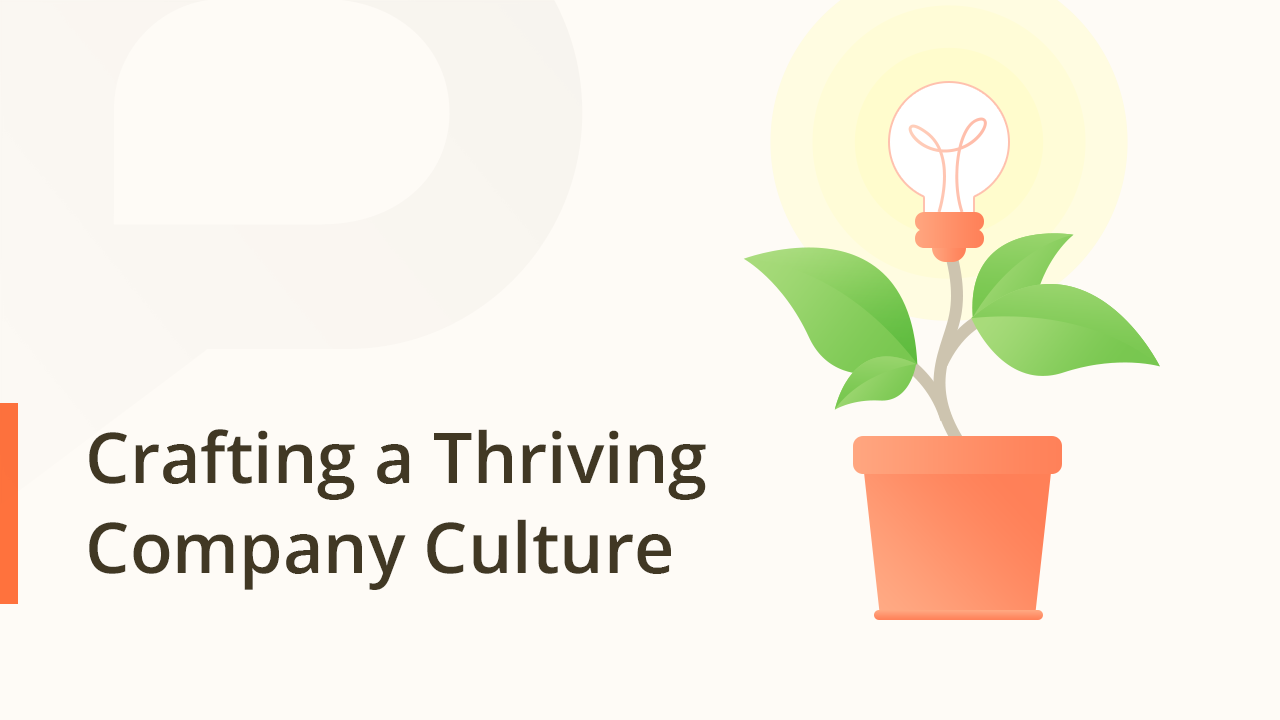Table of Contents
showSpending too much on recruitment, payroll or global HR?
We help you find the Best Providers at the lowest cost.
Company culture encapsulates the shared values, beliefs, and behaviors that define an organization. It is the invisible yet tangible force that shapes the character of a business, influencing everything from employee satisfaction and retention to innovation and overall profitability. Developing a robust company culture is strategic, requiring deliberate actions and commitment from all levels of the organization.
Key Takeaways
- Company culture significantly influences employee engagement and business performance.
- Leadership commitment is essential in shaping and maintaining a positive culture.
- A strong culture is key to attracting and retaining top talent.
What is Company Culture
Company culture encompasses an organization’s shared values, beliefs, and practices. The intangible social fabric defines how work gets done and how members interact within the corporate environment.
Core Components of Culture
An organization’s core cultural components are instrumental in sculpting its identity. First and foremost are the core values—the foundational principles that anchor decision-making and behaviors. These values are often expressed through a company’s mission statement and mirrored in everyday operations.
Beliefs are another intrinsic element shaping the collective mindset and attitudes of the workforce. Company culture characteristics, such as transparency, innovation, and collaboration, emerge from these convictions. Thus, Organizational culture reflects the espoused values and behaviors exhibited by employees and leadership.
Evaluating Organizational Culture
To evaluate organizational culture, one must consider both qualitative and quantitative data. Employee surveys, one-on-one interviews, and performance metrics can provide a glimpse into the health of the culture. Observational analysis of workplace interactions directly reveals how deeply the culture is defined and lived. Regular evaluation ensures that the organization’s culture aligns with its strategic goals, identifies areas of improvement, and maintains the culture’s strength in the face of growth and external challenges.
Leadership and Company Values
Leadership is pivotal in shaping and sustaining company values, influencing every aspect of organizational culture. Influential leaders understand that their actions and decisions impact their organization’s collective mindset and behaviors.
Role of Leadership in Culture
The effect of leadership on company culture cannot be overstated. Leaders model behaviors that set the standard for the organization guiding how employees interact, make decisions, and fulfill their roles. A leadership team’s commitment to company values can encourage a cohesive work environment, engaging and inspiring employees to advance the organization’s mission. Leaders who display consistent behavior that aligns with the company’s core values foster trust and a sense of shared purpose among team members.
- Responsibilities of Leaders:
- To exemplify the company’s core values in all actions
- To communicate the vision and mission clearly
- To engage employees at all levels, fostering a supportive culture
Aligning Values with Strategy
Integrating company values and business strategy is crucial for any organization’s success. Leaders, including the CEO, construct and implement strategies to improve the workplace environment and achieve market success. This synergy ensures that every strategic decision reinforces and advances the company’s core values. A cohesive culture emerges when leadership actions support these values, uniting the organization under a shared vision.
- Key Alignment Actions:
- Crafting strategies that reflect and promote company values
- Measuring the impact of these strategies on culture and performance
- Adjusting tactics in real-time to maintain alignment with core values
Cultivating a Positive Work Environment
Creating a positive work environment is essential for employee engagement, retention, and overall job satisfaction. It requires a commitment to diversity, inclusion, and providing benefits that foster a healthy work-life balance.
Fostering Employee Engagement
Employee engagement is a cornerstone of a thriving work environment. Companies can foster this by recognizing achievements and providing growth opportunities. Regular feedback and open communication channels make employees feel heard and valued, boosting their commitment and productivity.
- Recognition Programs: Implement initiatives like ‘Employee of the Month’ or performance bonuses to acknowledge exceptional work.
- Professional Development: Offer access to workshops, courses, and seminars that encourage continuous learning and career progression.
In building a positive work environment, focusing on employee recognition and rewarding contributions is crucial. In this digital era, companies are leveraging automated gifting solutions to streamline the process of rewarding employees. Such platforms not only save time but also offer a variety of options to suit individual preferences, making them an excellent addition to enhancing your company’s culture and boosting morale. Implementing these platforms can show appreciation in an efficient, personalized manner, fostering a culture of recognition and gratitude.
Inclusion and Diversity Practices
A diverse work environment benefits from various perspectives and problem-solving approaches. Inclusion and diversity practices ensure that all employees feel represented and that their voices matter.
- Develop training programs to educate staff on the importance of diversity and techniques for inclusive collaboration.
- Create diverse hiring panels and ensure job postings reach a broad audience to attract various candidates.
Work-Life Balance Initiatives
Employees perform best when they have a healthy balance between their professional and personal lives. Companies that offer flexible working arrangements and other benefits support this balance and often see a reduction in turnover rates.
- Flexible Schedules: Allow for telecommuting or flexible work hours where possible.
- Perks and Benefits: Provide comprehensive benefit packages, including mental health days, fitness memberships, or family leave policies.
By implementing these strategies, organizations can build a robust, positive work environment that attracts quality talent and encourages them to stay and grow with the company.
Impact of Culture on Company Performance
A company’s culture can significantly influence its performance metrics, including productivity, innovation, and growth. Crucial to that performance is the company’s innovative capabilities and the drive that propels all workforce levels.
Innovative Cultures and Growth
When a company fosters an innovative culture, it nurtures growth in several ways. Innovation encourages the development of new products and services, catering to emerging customer demands. Notably, companies with a strong culture of innovation tend to see higher levels of employee retention as their staff feel more engaged and valued. The Harvard Business Review highlights that employees at all levels contribute to a company’s growth trajectory when a culture of shared responsibility toward innovation is established.
Culture as a Driver of Performance
Culture directly impacts performance by shaping the behavior towards achieving corporate goals. A solid culture built around performance goals incentivizes employees to drive results. As per insights provided by Forbes, a culture that aligns with a company’s strategic objectives tends to boost operational efficiency. Moreover, a well-crafted culture can improve productivity as employees understand their role in the bigger picture and are motivated to work effectively.


